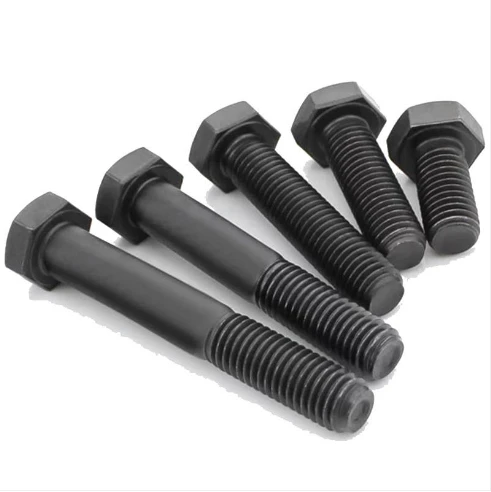OEM ISO Hex Nuts for Precision Fastening Solutions in Various Applications
វិច្ឆិកា . 10, 2024 17:21 Back to list
OEM ISO Hex Nuts for Precision Fastening Solutions in Various Applications
Understanding OEM ISO Hex Nuts A Comprehensive Guide
In the world of manufacturing and engineering, fasteners play a crucial role in assembling components efficiently and securely. Among the various types of fasteners, the hex nut is one of the most commonly used. When we specifically refer to OEM (Original Equipment Manufacturer) ISO (International Organization for Standardization) hex nuts, we dive into a specialized segment of fasteners that align with international standards and cater to the unique needs of manufacturers.
What is a Hex Nut?
A hex nut is a type of fastener that has six flat sides, allowing it to be easily tightened with a wrench. Hex nuts are typically paired with bolts or screws and are used to secure objects by creating a tight fit. Their simple yet effective design makes them highly versatile, found in applications ranging from household items to industrial machinery.
The Importance of OEM
OEM products refer to components that are made by the original manufacturer of a particular equipment model. In terms of hex nuts, OEM hex nuts are manufactured to the exact specifications of a specific application or machine. This ensures compatibility, reliability, and performance, which is especially critical in sectors such as automotive, aerospace, and construction.
Using OEM components is vital for maintaining the integrity and safety of a machine. Non-OEM alternatives may appear similar, but they might not meet the original specifications, leading to potential failure in performance or safety issues. Therefore, for manufacturers looking to maintain high-quality standards, using OEM hex nuts is a wise choice.
ISO Standards for Hex Nuts
ISO standards help ensure that products meet consistent quality and safety benchmarks, facilitating international trade and interoperability. ISO 4032, for instance, specifies the requirements for hex nuts made from carbon steel or alloy steel with various hardness levels. The standards cover aspects such as dimensions, tolerances, mechanical properties, and manufacturing processes.
By adhering to ISO standards, OEM manufacturers can produce hex nuts that are reliable and meet global requirements, making them suitable for a wide range of applications. This compliance not only assures buyers of their quality but also enhances the credibility of manufacturers in a competitive market.
oem iso hex nut

Materials and Coatings
OEM ISO hex nuts are typically made from materials like stainless steel, carbon steel, or alloy steel, depending on the application. The choice of material impacts the nut’s strength, corrosion resistance, and overall longevity. For instance, stainless steel hex nuts are preferred in environments where moisture and corrosion are concerns, such as in marine or chemical processing applications.
Moreover, various coatings can enhance the performance of hex nuts. Zinc plating, for instance, is a common treatment to improve corrosion resistance. Other treatments might include hot-dip galvanizing or anodizing, each suited for specific environments and requirements.
Applications of OEM ISO Hex Nuts
The versatility of OEM ISO hex nuts means they can be found across a variety of industries
1. Automotive Industry Hex nuts are extensively used in vehicle assembly, ensuring that all components are securely fastened. 2. Construction They play a critical role in structural frameworks, machinery, and housing units, providing stability and safety. 3. Aerospace In aviation, precision is crucial, and OEM hex nuts meet the stringent safety and performance standards.
4. Manufacturing Equipment Machinery used in factories relies on hex nuts to maintain operational efficiency and safety.
Conclusion
In conclusion, OEM ISO hex nuts offer a combination of quality, performance, and reliability that is essential in various industries. By adhering to international standards and using high-quality materials, these fasteners ensure that manufactured products are safe, durable, and effective. For businesses prioritizing quality and compatibility, investing in OEM ISO hex nuts is not just an option; it is a necessity. Whether you're involved in automotive, aerospace, or construction, understanding and utilizing these essential fasteners can significantly enhance your operations and product reliability.
Latest news
-
Reliable Cabinet Bolts Supplier – Quality Fasteners for Cabinets
NewsJul.27,2025
-
Premium Phosphated Drywall Screws Supplier & Manufacturer Solutions
NewsJul.26,2025
-
Top Metric Wood Screw Companies – Reliable Manufacturer & Supplier
NewsJul.25,2025
-
Reliable Axle Nuts Supplier - Quality Manufacturing & Export Services
NewsJul.24,2025
-
Top Wire Bolts Suppliers & Exporters - Quality Fasteners Factory
NewsJul.23,2025
-
Reliable Wire Bolts Company & Supplier for Construction Solutions
NewsJul.22,2025
